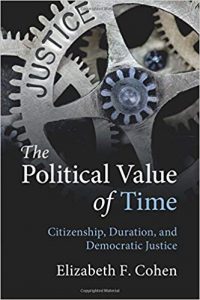UPDATE 2 – I’ve now done some sorting of the list. OK, the categorisation is inevitably arbitrary but it seemed helpful as the list got so long. More suggestions in the comments. And huge thanks to all who contributed.
Econtwitter is wonderful. Yesterday, an undergraduate emailed me to ask for book recommendations about the overlap between economics and philosophy. I recommended:
Then I asked Twitter, and here is the resulting, much longer, list. I won’t editorialise about them, although some are not good undergraduate intros in my view. One striking thing is how few recent overviews there are, however (as @esamjones also pointed out on Twitter). Huge thanks to all who made suggestions. This is a fantastic collective list.
UPDATE Now even more added – but this goes far beyond the original brief for an introduction for an undergraduate. There’s also a bias in the recommendations toward books critical of economics (or at least its ‘mainstream’) and, again, I think for an economics undergraduate a more neutral intro would be a better starting point. Anyway, I leave this here as a list, not a curriculum.
General
The Worldly Philosophers, Robert Heilbroner
Jon Elster’s Nuts and bolts for the social sciences
General philosophy
Julian Reiss, Philosophy of Economics
Frank Hahn and Martin Hollis’s Philosophy and Economic Theory
Joan Robinson, Economic Philosophy
Harold Kincaid, Don Ross Oxford Handbook of Philosophy of Economics
Cartwright & Montuschi Philosophy of Social Science
Ethics/markets/justice/social choice
Nozick Anarchy State and Utopia
Rawls A Theory of Justice
Contested Commodities – Margaret Reading
The Value of Nothing Raj Patel
Several books by Martha Nussbaum
Ken Binmore’s Playing Fair, Just Playing, or Natural Justice
Tomas Sedlacek’s The Economics of Good and Evil
Hausman & McPherson’s Economic analysis & moral philosophy
Emma Rothschild, Economic Sentiments
Jerry Muller, The Mind and the Market: Capitalism in Modern European Thought
L’Enfer Des Choses Dupuy & Dumouchel
The Moral Economy Sam Bowles
John Brooms Weighing Goods
Debra Satz Why Some Things Should Not Be For Sale
Ben Friedman The Moral Consequences of Economic Growth
Jesse Norman, Adam Smith: What He Thought & Why It Matters, chapters 6-10
Will MacAskill Doing Good Better
Anything by Toby Ord
If You’re an Egalitarian How Come You’re So Rich G A Cohen
M White The Oxford Handbook of Ethics and Economics
Methodology
Deirdre McCloskey The Rhetoric of Economics
Kenneth Boulding Economics as a Science
Francesco Guala’s work, eg Methodology of Experimental Economics, then Understanding Institutions
Explanation and Human Action by A R Louch
Tony Lawson Reorienting Economics
Sheila Dow Foundations for New Economic Thinking
Wade Hands Reflection without Rules
Better ways of doing economics
Albert Hirschman, Exit, Voice & Loyalty
The Social Limits to Growth, Fred Hirsch
Thomas Schelling Micromotives and Macrobehaviour
Mahbub-al-Haq. The Poverty Curtain
Paul Seabright The Company of Strangers
Robert Sugden The Community of Advantage
Kaushik Basu The Republic of Beliefs
Dani Rodrik Economics Rules
Other classics
Adam Smith Theory of Moral Sentiments
Michel Foucault Birth of Biopolitics
F Hayek The Market and Other Orders

